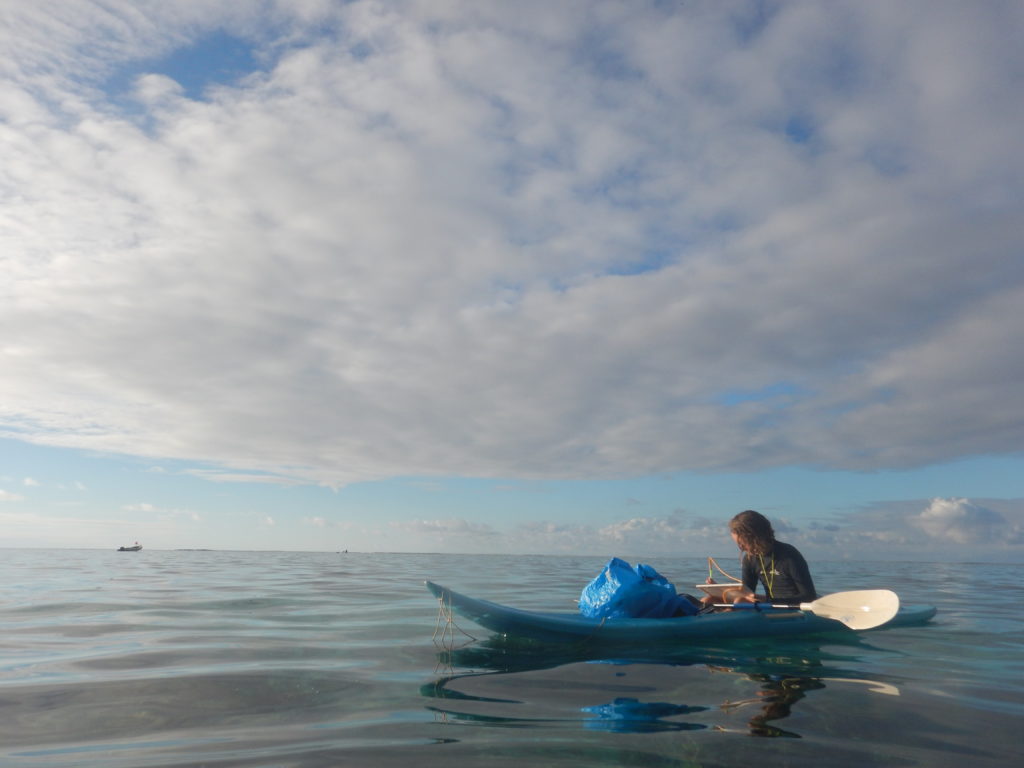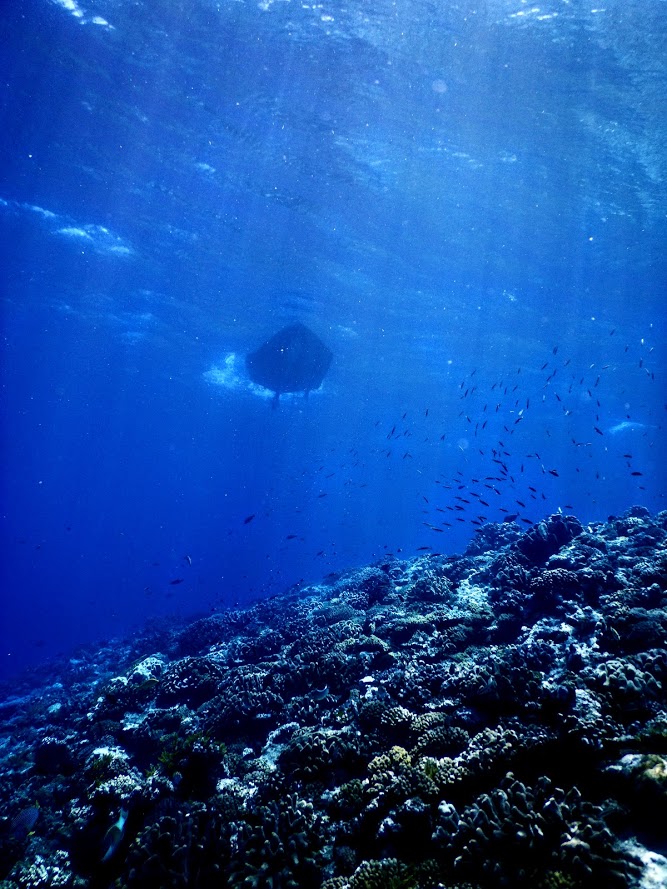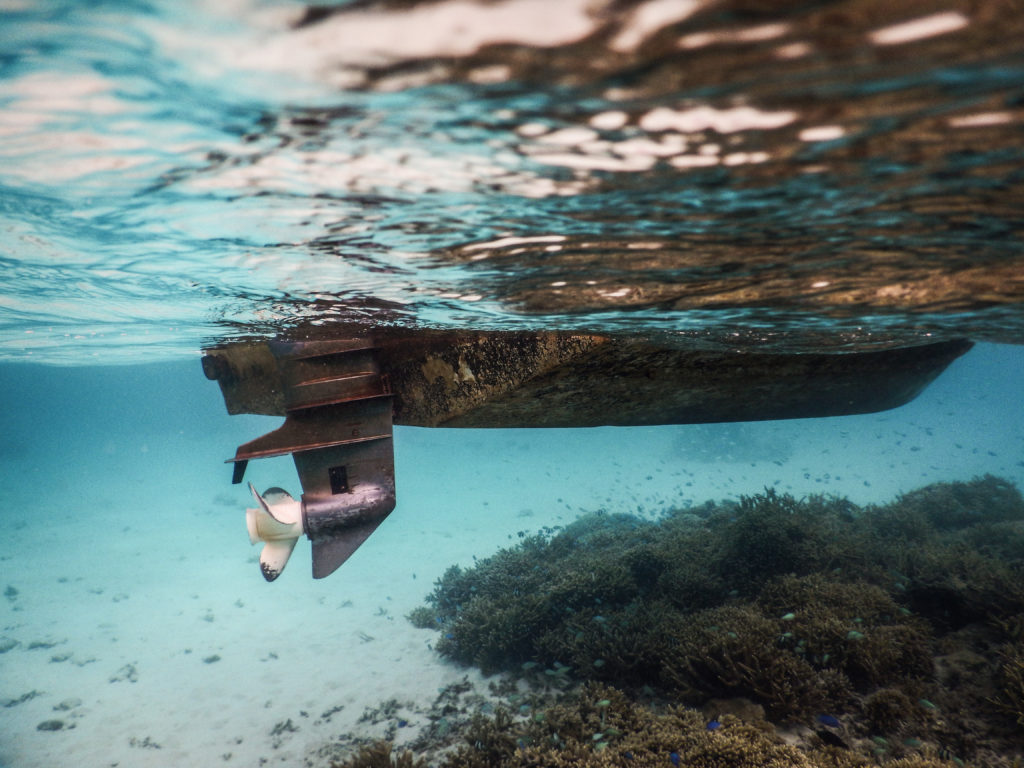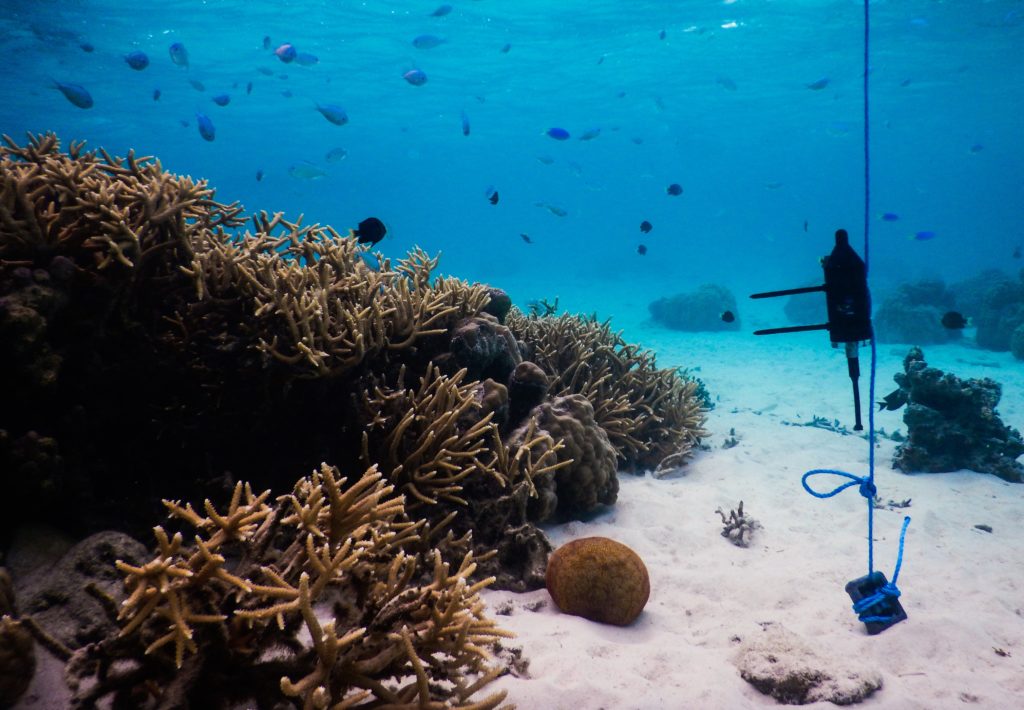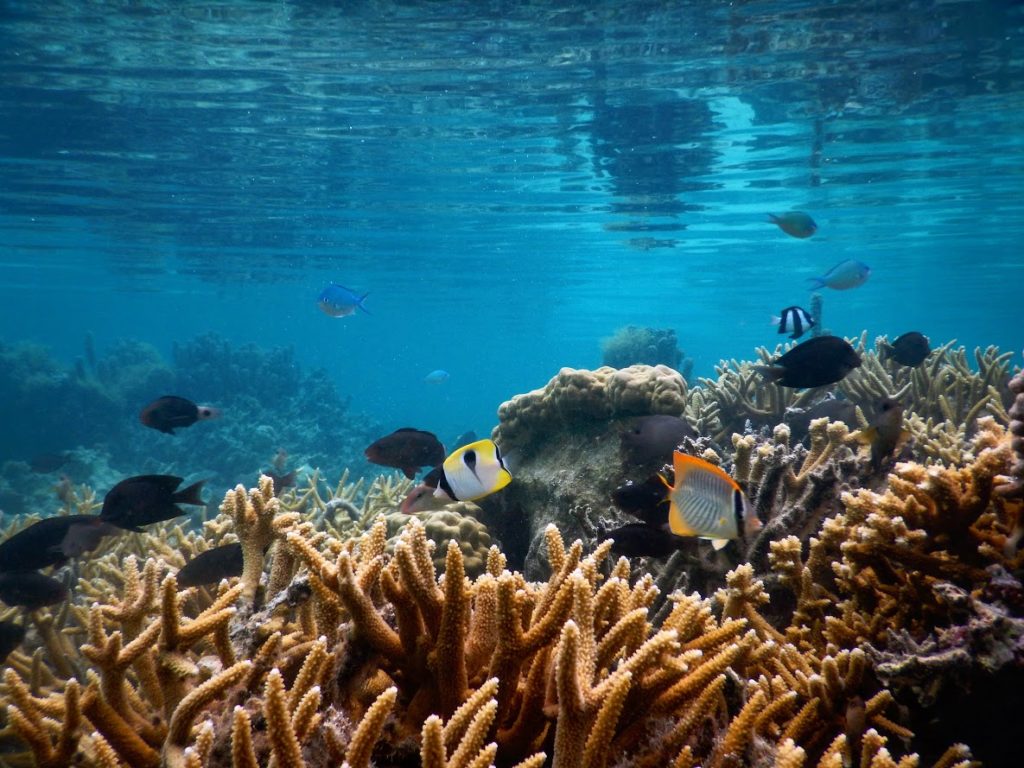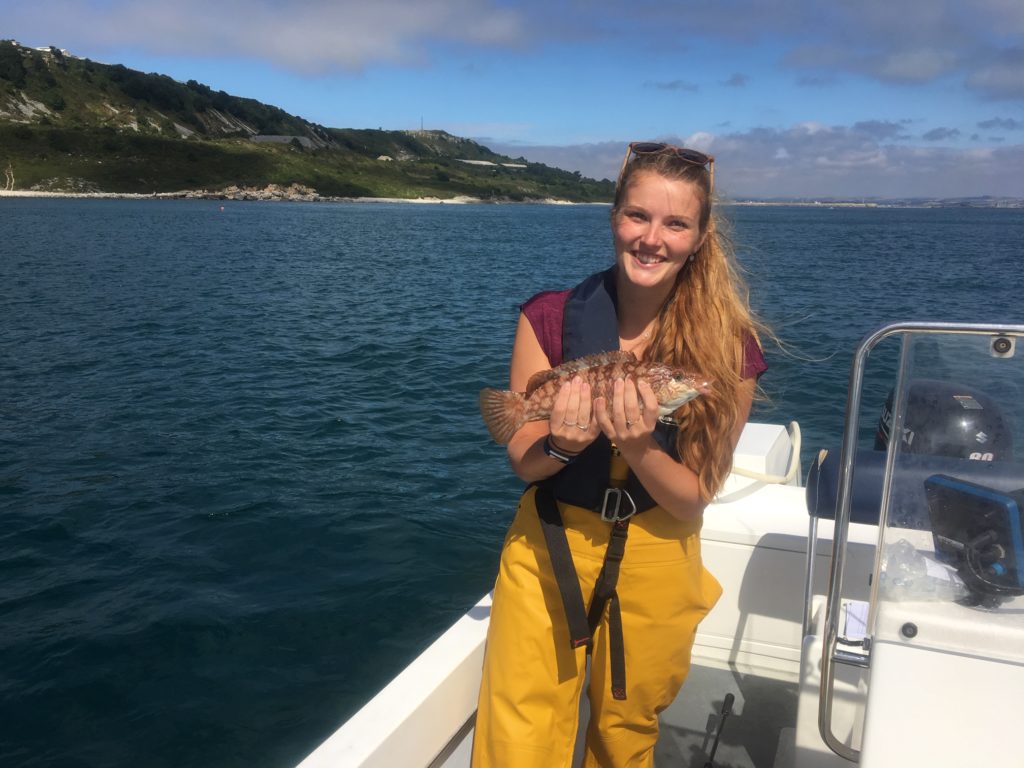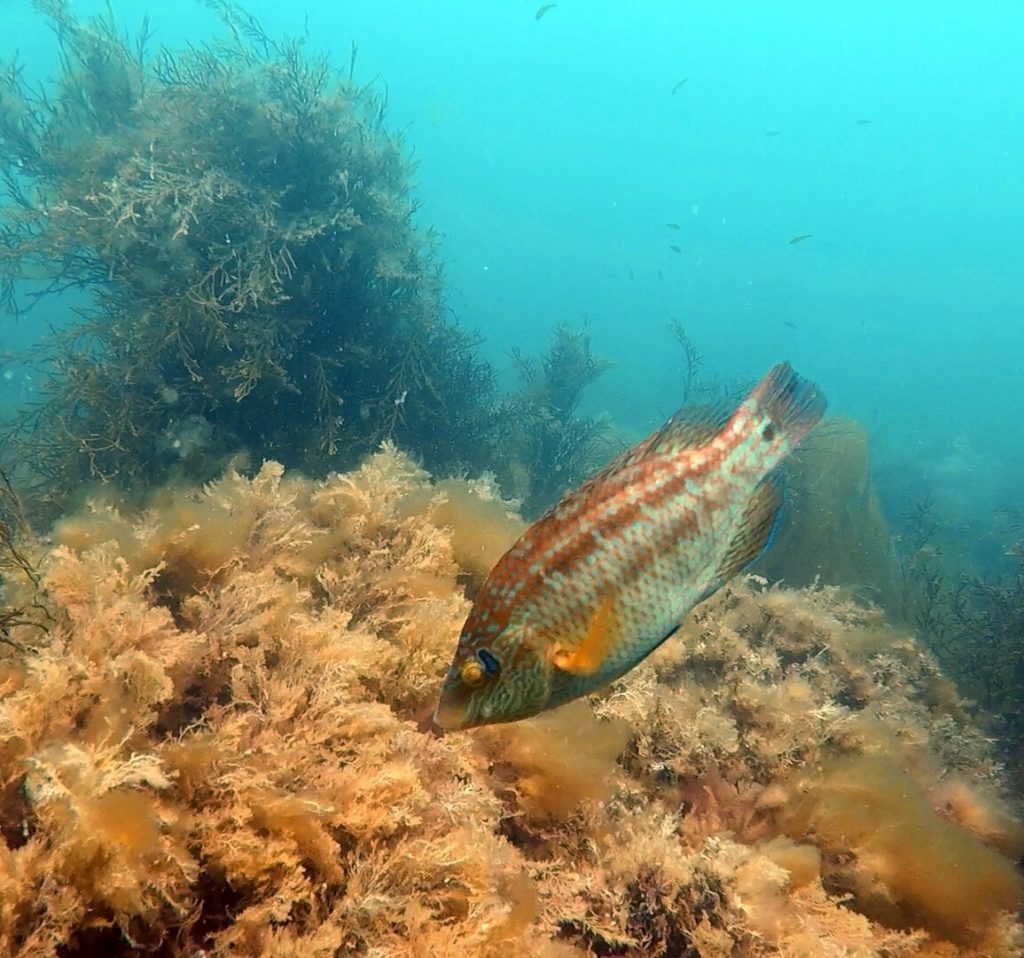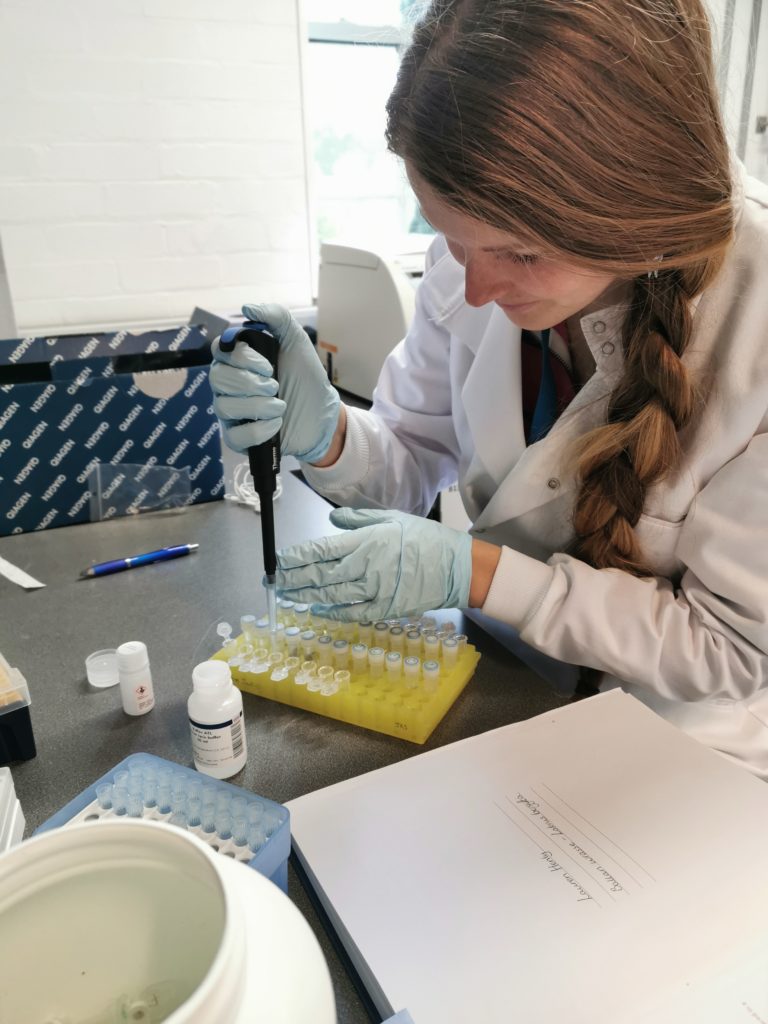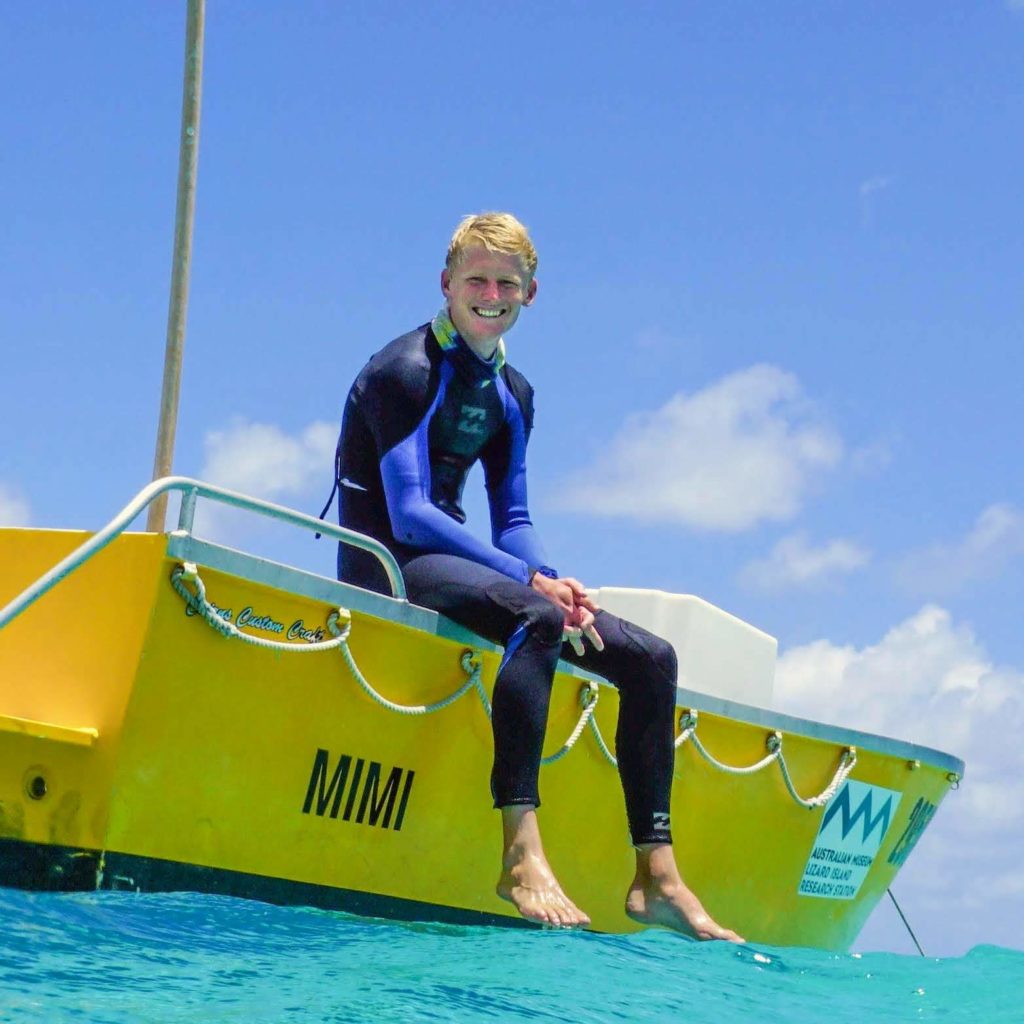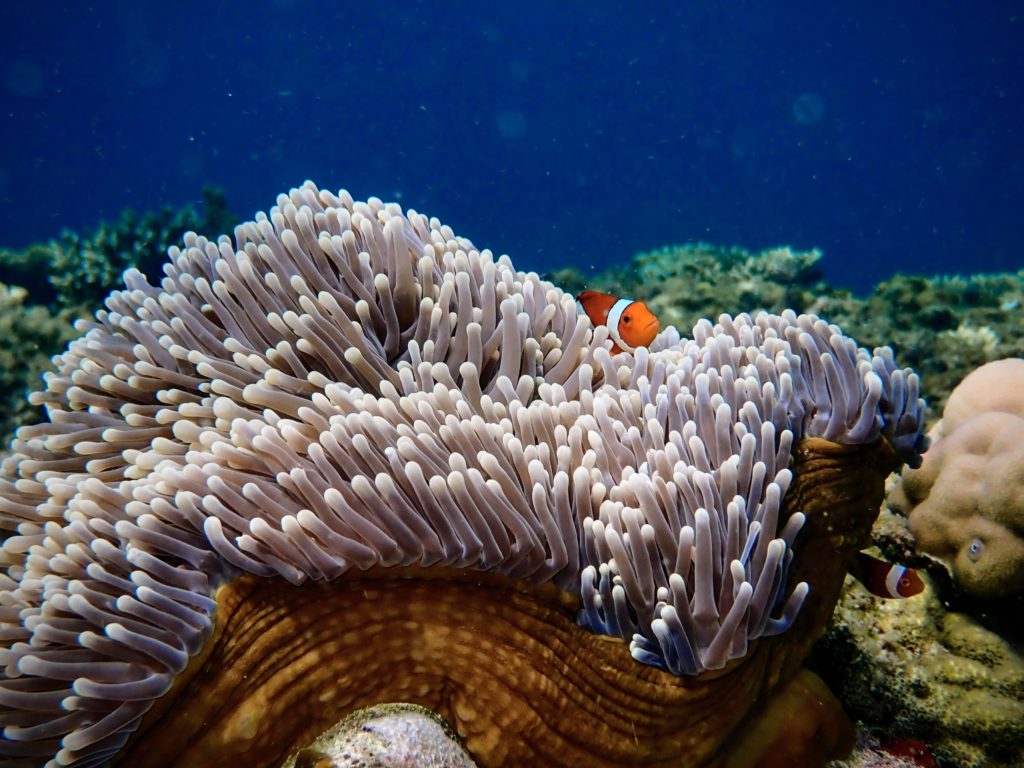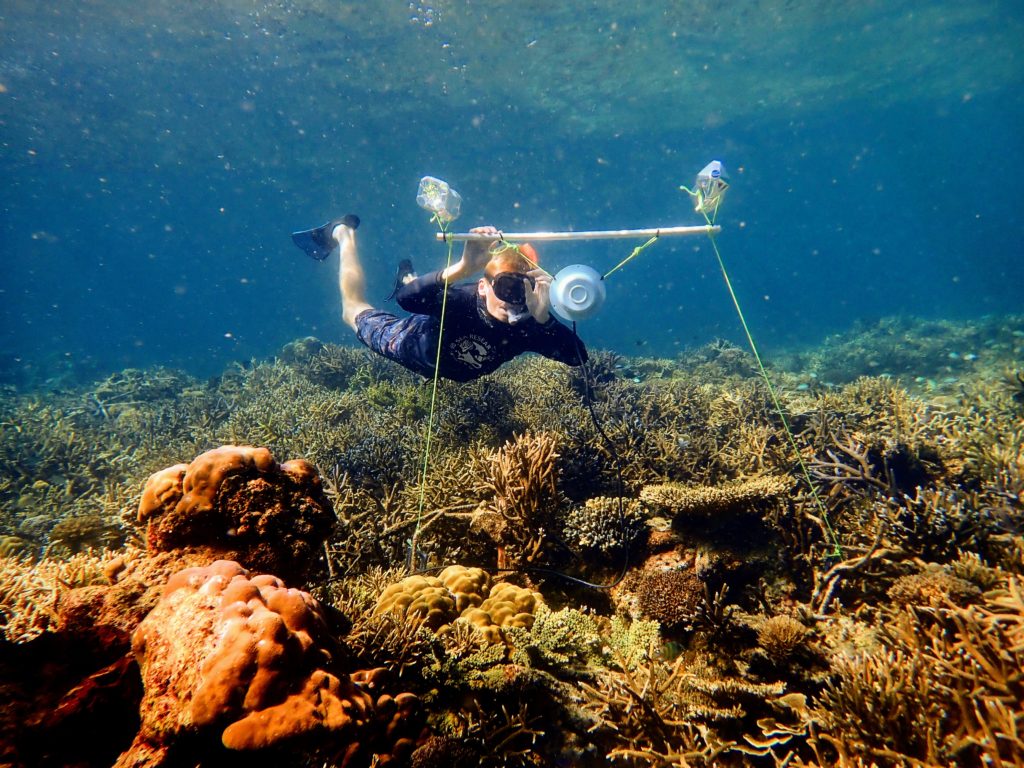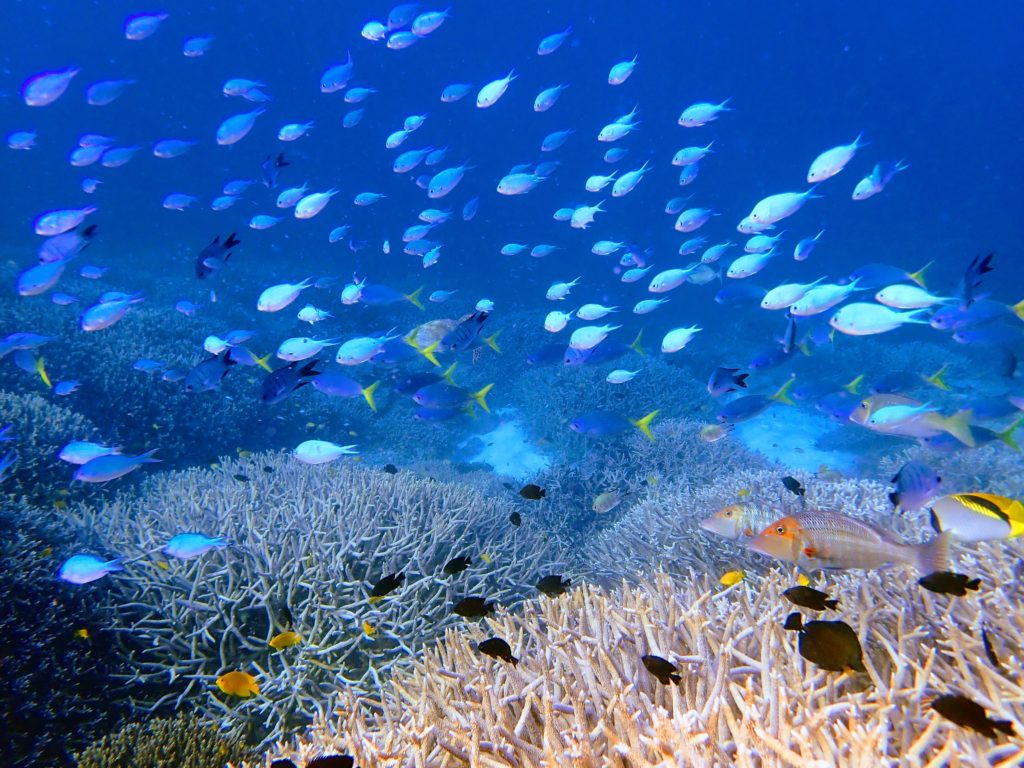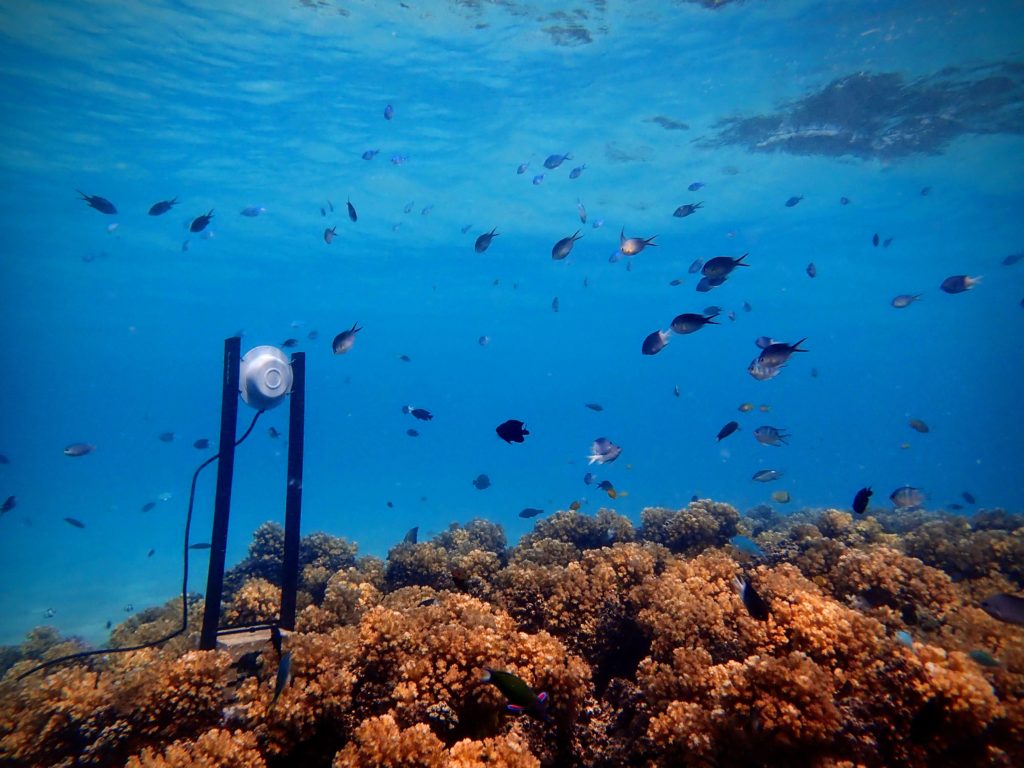This episode was recorded back in early 2019. Ben talks to Lauren Henly, Emma Weschke and Tim Gordon, who are all masters by research or PhD students in Prof. Steve Simpson’s research group (you might remember Steve from an earlier episode, Coral Reef Bioacoustics Part I). The discussion focuses around the research they’re all undertaking, what got them interested in marine biology, and what they have done so far.
About our guests:
Emma Weschke
At the time of recording Emma was a masters by research student and is now undertaking a PhD with the University of Bristol focusing on coral reef fish ecology and bioacoustics.
Lauren Henly
Lauren is a PhD student with the University of Exeter and Natural England studying functional ecology and behaviour of wrasse to inform management of wrasse fisheries. She provided us with the update below:
“I’m now in the 3rd year of my PhD. I’ve been developing lots of different methods to assess the sustainability and potential impacts of the Live Wrasse Fishery on the south coast. I’m using genetics to look at the population structure of wrasse along the south coast so we can identify the most effective management unit size, using stable isotopes to predict the ecological impacts of the fishery, and working to ensure the views of other stakeholders (including recreational anglers) are considered when developing management measures for the fishery. It’s great being able to use such a broad range of techniques to address a key issue.”
Tim Gordon
Tim is completing a PhD with the University of Exeter and the Australian Institute for Marine Science focusing on coral reef bioacoustcs, what can you learn from coral reefs by listening to them. You can find out more about Tim’s work in a previous episode – Coral Reef Bioacoustics Part II.
Topics discussed:
- Sustainability of wrasse fisheries around the UK.
- Ecological consequences of marine anthropogenic noise on coral reefs, both during the day and at night.
- How fish use underwater soundscapes.
- Using underwater sound to aid marine conservation efforts.
- The impacts of the degredation of coral reef marine noise
- Using underwater speakers to make reefs louder.
- The bigger picture aspects of working in a research group.
- What got you into marine biology?
Resources:
Episode and show notes produced by Ben Toulson and Katie Finnimore.
Check out other episodes of the podcast here.
You can subscribe on most podcast apps, if you’re feeling kind please leave us a review!
#ExeterMarine is an interdisciplinary group of marine related researchers with capabilities across the scientific, medical, engineering, humanities and social science fields. If you are interested in working with our researchers or students, contact Emily Easman or visit our website!

